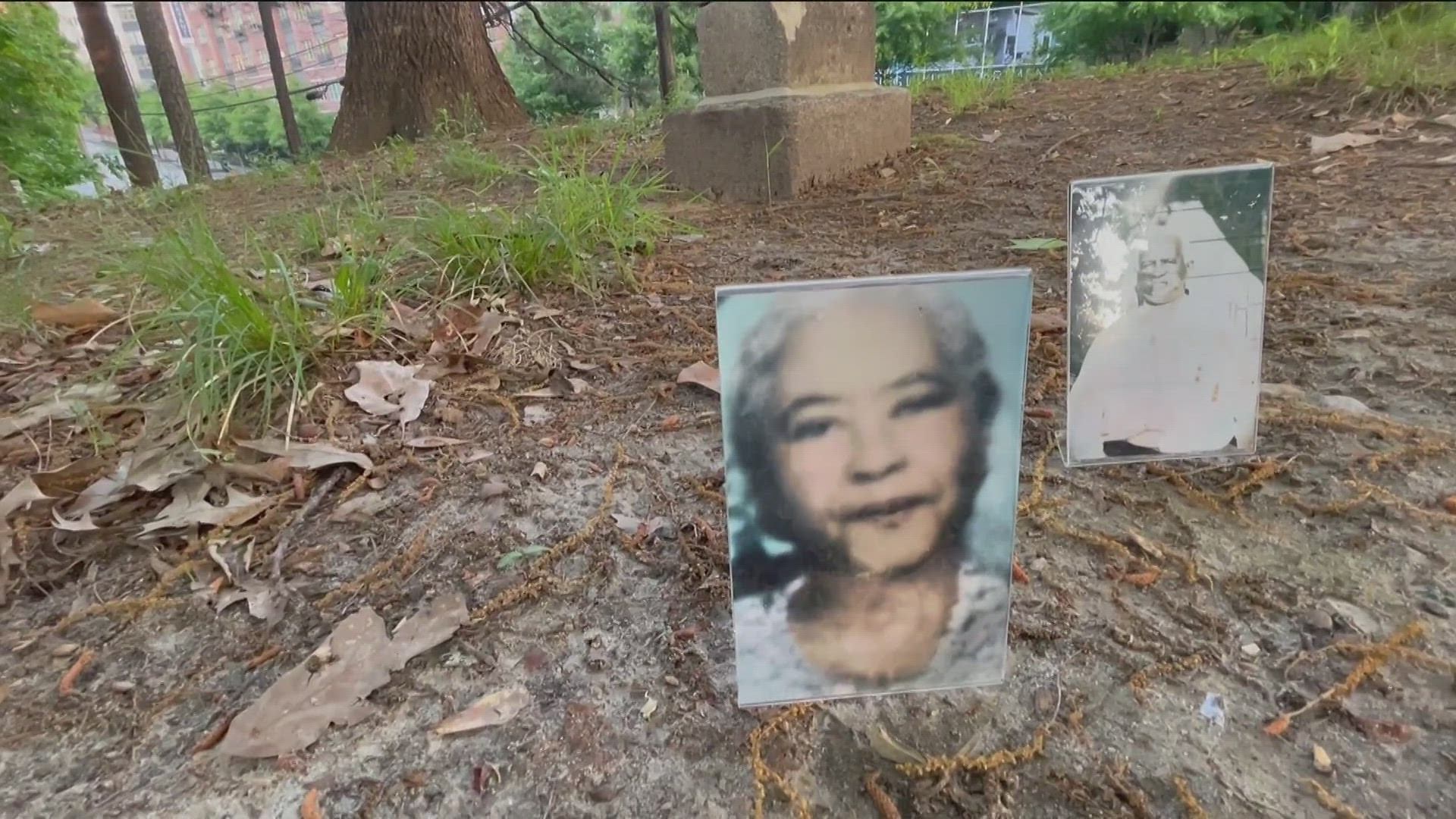ATLANTA — At the edge of a park in Buckhead, headstones overlook the tennis courts and baseball fields.
“Most people don’t know that it’s there,” said Elon Osby, one of the people fighting to keep that past as part of the future.
At a park off Pharr Road, where people come to play, is a cemetery with the graves of some enslaved people and former servants.
In May 2021, Mount Olive Cemetery was overgrown with weeds, its headstones were destroyed or knocked over and litter was scattered around. Osby said the cemetery has been in rough shape for a while.
Osby said research suggests there are anywhere from 45 to 100 hidden graves in the once bustling Black neighborhood where around 400 families found a home.
“There were stories of Ku Klux Klan coming through there and they would actually break up the gravestones. That’s why you don’t see any more than maybe three or four,” Osby explained.
Osby’s grandparents, William and Ida Bagley, along with her aunt and uncle, are buried at Mt. Olive. However, she said the markers are long gone.
One reminder of Bagley’s role still existed last year. The street leading people into the park off Pharr Road is named Bagley Street NE.
The park used to be called Bagley Park, named after Osby’s grandfather before the City later renamed it Frankie Allen Park.
Bagley Park was an African American community founded by formerly enslaved people in the 1800s and later filled with people who were forced out of Forsyth County in 1912.
“The people that lived there, they worked for the wealthy, rich white families that lived in the surrounding areas,” said Osby.
Osby said people started filing complaints about Bagley Park, sparking families to get forced out. She said it was then demolished and turned into a park.
“It’s a sad, sad story,” Osby said, shaking her head.
In 1980, the City changed the park’s name to Frankie Allen Park.
Then, around 15 years ago, Osby says a man bought the plot of land the cemetery sits on, sight unseen, with the plan to move the graves so he could start building.
“I just thought about all of the things they had lost,” said Osby. “All of the things that had been taken from them, their home in Bagley Park. And no more. It stops here.”
Osby and the Buckhead Heritage Society fought the purchase with a lawsuit.
“Once I found out about it, I said 'Not this time,'” said Osby when she heard about the potential purchase. “You’re not going to force my family out again.”
Buckhead Heritage Society won the lawsuit and started working to preserve the existing headstones.
“If not for Buckhead Heritage, it would not be in as good of shape as it's in now, and it’s not good,” said Osby, hopeful the restoration will bring more relatives forward.
“There is a lot of hidden history, and over the next few years, we’re going to see a lot of it unearthed,” Camille Russell Love, the executive director of the mayor’s Office of Cultural Affairs for the City of Atlanta.
Throughout the past year, the work started.
Existing headstones were cleaned and standing back up, while others have been unearthed. There is currently construction happening at the cemetery to add fencing around the site.
Atlanta City Council also unanimously voted to change the park’s name back, complete with a sign with “Historic Bagley Park” displayed.

